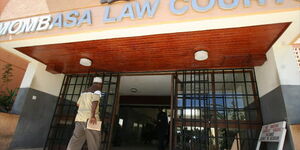An autopsy report released by government pathologist, Dr Johansen Oduor, has revealed the cause of death of Karen DCI officer - Ann Waiganjo - who passed away on Saturday, July 3.
The DCI officer collapsed and died at a colleague's farewell party in Upper Hill, Nairobi.
Waiganjo succumbed to deep vein thrombosis. The autopsy report detailed that a blood clot in her left leg affected the heart functions.
“She had deep vein thrombosis (DVT), which led to pulmonary embolism; a clot in the pulmonary artery,” Oduor stated after conducting the autopsy in the company of the late's family and DCI detectives investigating the case.
Her colleagues who spoke to Kenyans.co.ke detailed that the autopsy was conducted on Thursday, July 7, but kept away from friends and the public.
Waiganjo was a sibling to Joshua Waiganjo who was arrested multiple times in the past years - but acquitted - after he was accused of impersonating an Assistant Commissioner of Police for five years.
Pulmonary Embolism
Pulmonary embolism is a blockage in one of the pulmonary arteries in the lungs. In severe cases, pulmonary embolism is caused by blood clots that travel to the lungs from deep veins in the legs or, rarely, from veins in other parts of the body.
The blood clots sometimes form in surface veins. In rare cases, pulmonary embolism is caused by other substances such as small masses of infectious material, fat, air bubbles or substances that get into the blood from trauma, surgery, or medical procedures, tumours caused by rapidly growing cancer cells and amniotic fluid.
Symptoms include sudden shortness of breath, sharp chest pains, foamy and blood-spotted mucus when a victim coughs, sweating and fainting.
Others are swelling of the affected leg, pain in the legs and red or discoloured skin on the leg.
Patients can be treated with medicines called anticoagulants also known as blood thinners. They help prevent new clots and keep existing clots from growing. Thrombolytics are used to treat severe cases.












